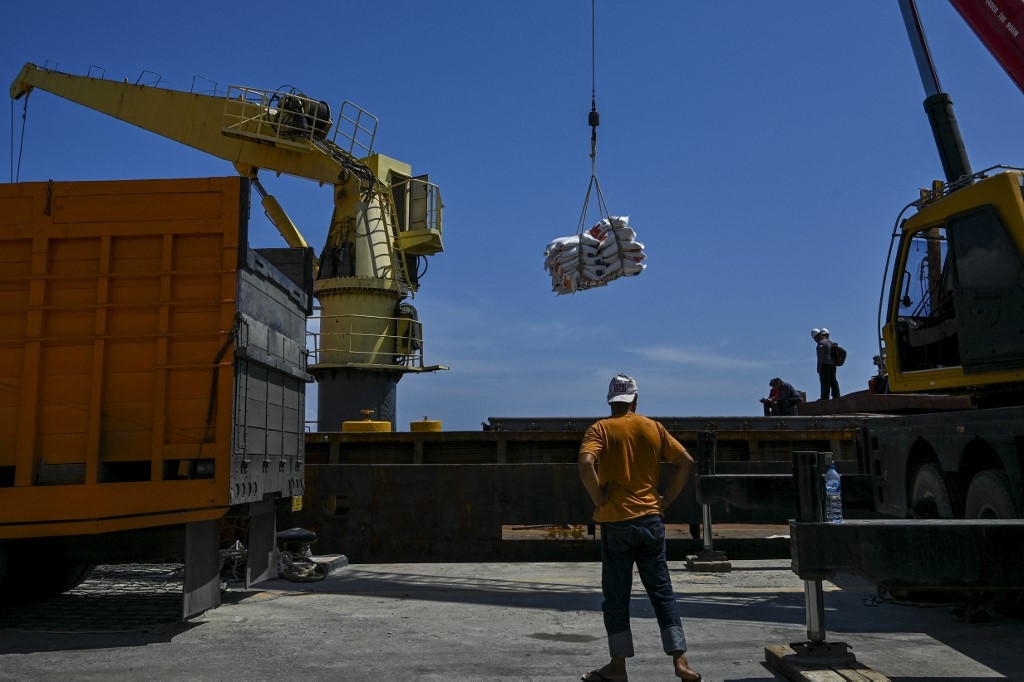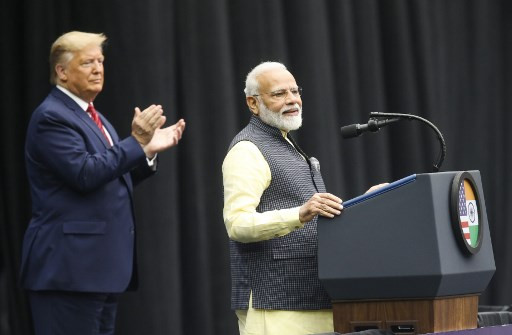Popular Reads
Top Results
Can't find what you're looking for?
View all search resultsPopular Reads
Top Results
Can't find what you're looking for?
View all search resultsGlobal rice prices hit 15-year high after India curbs: FAO
While global food prices eased in August, those of rice rose 9.8 percent compared to the previous month, "reflecting trade disruptions in the aftermath of a ban on Indica white rice exports by India", the FAO said in a monthly report.
Change text size
Gift Premium Articles
to Anyone
G
lobal rice prices reached a 15-year high in August after top exporter India banned some overseas sales of the grain, the Food and Agriculture Organization said Friday.
While global food prices eased in August, those of rice rose 9.8 percent compared to the previous month, "reflecting trade disruptions in the aftermath of a ban on Indica white rice exports by India", the FAO said in a monthly report.
"Uncertainty about the ban's duration and concerns over export restrictions caused supply-chain actors to hold on to stocks, re-negotiate contracts or stop making price offers, thereby limiting most trade to small volumes and previously concluded sales," the UN agency said.
Rice is a major world food staple and prices on international markets have soared in the wake of the COVID-19 pandemic, the war in Ukraine and the impact of the El Nino weather phenomenon on production levels.
India announced in July a ban on exports of non-basmati white rice, which account for around a quarter of its total.
The consumer affairs and food ministry said at the time that the move would "ensure adequate availability" and "allay the rise in prices in the domestic market".
India accounts for more than 40 percent of all global rice shipments.
The ban was expected to hit African nations, Turkey, Syria and Pakistan, all of which were already struggling with high inflation, data analytics firm Gro Intelligence warned in a note in July.
The Philippines, one of the world's top importers of rice, reached a five-year agreement with Vietnam on Thursday to buy rice.
El Niño effect
World rice stocks are forecast to reach an all-time high of 198.1 million tonnes, with India and China holding nearly three quarter of this volume like in previous seasons, according to the FAO.
This total represents around 38 percent of rice consumption forecast over the same period.
But aggregate rice reserves held by the rest of the world are expected to end the year with a second successive contraction, it added.
El Nino could also have a negative effect on the next harvests.
The turmoil in the rice market comes as global food prices have been progressively easing from a peak last year after war broke out between major grain producers Russia and Ukraine.
The FAO's global food price index, which tracks monthly changes in international prices of a basket of food commodities, averaged 121.4 points in August, down 2.1 percent from July.
The index was 24 percent below the summit it reached in March 2022.
Prices of cereal, meat, dairy and vegetable oils all fell in August.
Sugar prices, however, rose by 1.3 percent due to "heightened concerns over the impact of the El Niño phenomenon on sugarcane crops, along with below-average rains in August and persistent dry weather conditions in Thailand".
'Modest' recovery
Global food prices had slightly rebounded in July when Russia pulled out of a deal brokered by the UN and Turkey that had enabled Ukraine to ship grains via the Black Sea.
The FAO said on Friday it had lowered its forecast for world trade in cereals in 2023 and 2024 to 466 million tonnes, a 1.7 percent drop from the previous marketing season.
"Traded volumes of wheat and maize are all predicted to decline, due to a mix of reasons, including falling exports by Ukraine due to trade disruptions associated with the ongoing war," it said.
"FAO has also lowered its forecast for world trade in rice from the July figure considering the stepped-up export restrictions by India," the FAO added.
An expected recovery of the rice trade in 2024 would be "modest" if the India restrictions are protracted and El Nino disrupts production in other Asian exporters, the FAO added.











